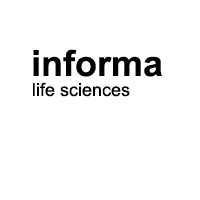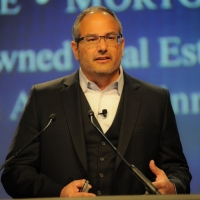 Friedrichstraße 151, 10117, Berlin, Germany
Friedrichstraße 151, 10117, Berlin, GermanyThe main objective of the conference is to facilitate industry benchmarking, practical discussions and regulatory agency feedback to enable faster and more effective analytical method development, validation and transfer.
Speaker Faculty:
Simeon Gill, Pharmaceutical Assessor, MHRA, UK
Anders Karlsson, Associate Director, Analytical Science, Pharmaceutical Development, AstraZeneca R&D Mölndal, Sweden
Annick Gervais, Director, Physico-Chemical Method Development, Analytical Sciences for Biologicals, UCB, Belgium
Annette Lauridsen, Associate Director, Analytical Technology, Biogen Idec, Denmark
Maria Baltussen, Head Analytical Research, Synthon, The Netherlands
Thomas Meissner, Head QC Biologics, Novartis Pharma AG, Switzerland
Glen Hodge, Senior Principal Scientist, Pfizer, UK
Adrian Clarke, Fellow, Chemical and Analytical Development, Novartis Pharma AG, Switzerland
Ingvil Gausemel, Senior Scientist, GE Healthcare, Norway
PLUS many more!



validation
• Successfully validating against ICH Q2: How much validation and when in development?
• Discussing regulatory expectations for method transfer
Simeon Gill, Pharmaceutical Assessor, Medicines and Healthcare Products
Regulatory Agency (MHRA), UK

• Meeting validation criteria for successful regulatory approval
• Outlining regulatory expectations for testing and demonstrating analytical method
robustness
• Developing lean methods whilst meeting regulatory expectations and requirements
Dr Alfred V. Del Grosso, Team Leader, Chemistry, U.S. Food and Drug
Administration (FDA), Center for Biologics Evaluation and Research, Division of
Biological Standards and Quality Control, USA


• EFPIA/PhRMA White Paper, USP Stimuli Article (PF 39/5)
• Establishment of measurement requirements: Analytical Target Profile
• 3-Stage-Approach to analytical validation:
– Method Design
– Method Performance Qualification
– Continued Method Performance Verification
• Change Control and regulatory flexibility
Dr Joachim Ermer, Head of Quality Control Services, Frankfurt Chemistry & Global Reference
Standards Coordinator, Sanofi, Germany

Agency (MHRA), UK

(FDA), Center for Biologics Evaluation and Research, Division of Biological Standards
and Quality Control, USA

Dr Claudio Brunelli, Senior Scientist, Pfizer Analytical Research and Development, UK

methods
• Discussing continuous improvement possibilities in relation to a control strategy concept
• Illustrating what a control strategy based concept for analytical methods looks like in
practice
• Determining key features of control strategy based analytical methods
• Assessing what signifies major and minor method changes
Silke Klick, Regulatory CMC Director, AstraZeneca R&D;, Sweden


• Assessing which parameters have been covered, and why
• Examining the rationale behind why parameters were dropped
• Balancing the need for investigating all parameters on the primary reference vs
technical quality
• Do we use results from early phase research in the primary reference characterization?
• Discussing how much time is spent on primary reference characterization and is this
appropriate
Dr Arnfinn G Andersen, Department Manager, Analytical & Bioanalytical Chemistry
Department, GE Healthcare, Norway

Estelle Bour, Analytic Scientist, Analytical Chemistry, F. Hoffmann-La Roche Ltd, Switzerland

development strategies
• Demonstrating how computer method development can be used on a daily basis
• Sharing examples of method envelopment simulations and predictions
• Examining how data and findings are translated into more effective and efficient real
method development
Adrian Doggett, Research Scientist, Bristol-Myers Squibb, UK


• Assessing the parameters that need to be monitored for a successful transition between
HPLC and UHPLC but also between different UHPLC systems
• Considerations on system (extra-column) dispersion and tips and tricks to optimise
HPLC/UHPLC systems
• Overcoming common issues of resolution, repeatability and accuracy
• Establishing standard tests for system monitoring and troubleshooting
• Sharing best practices and examples of successful HPLC to UHPLC transitions
Dr Dorina Kotoni, Principal Scientist, Chemical and Analytical Development,
Novartis Pharma AG, Switzerland
Lynne Burrell, Senior Scientist, Analytical Development, GSK, UK


Speakers and discussion hosts include:
Sébastien Vion, QC Analytical Expert, Novartis BioPharmaOps, France
Joachim Ermer, Head of Quality Control Services, Frankfurt Chemistry & Global Reference Standards Coordinator, Sanofi, Germany







 Friedrichstraße 151, 10117, Berlin, Germany
Friedrichstraße 151, 10117, Berlin, Germany

